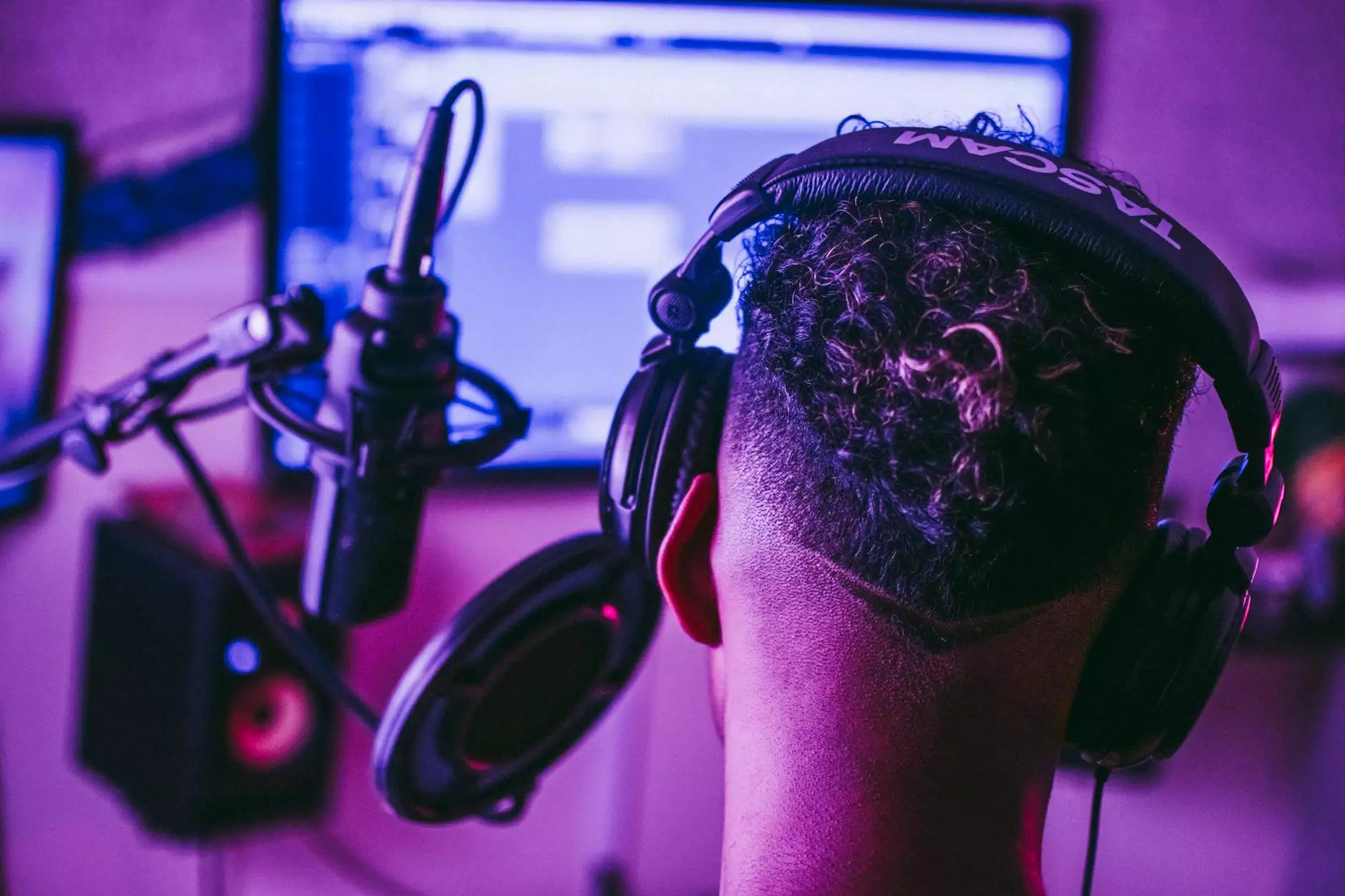Unlocking the Power of Apps That Recognize Music: Revolutionizing the Music & Video Industry and Business Innovation

In today's digital age, technology continues to reshape the way we experience, interact with, and monetize music and video content. Among the most significant advancements is the advent of apps that recognize music. These powerful tools leverage sophisticated algorithms, artificial intelligence, and massive databases to identify songs instantly, opening new avenues for businesses, consumers, and creators alike. As a leader in software development and music & video, streamify.ch is at the forefront of integrating these innovative solutions into the marketplace, driving growth and redefining industry standards.
Understanding Apps That Recognize Music: The Technology Behind Music Identification
Apps that recognize music are sophisticated software programs designed to identify audio content with remarkable accuracy and speed. By analyzing unique audio fingerprints—digital representations of a song’s distinct characteristics—these apps can match the sound to vast libraries of existing music. This process involves several advanced technologies:
- Audio Fingerprinting: Creating a unique digital signature for each song based on its acoustic features.
- Massive Databases: Maintaining extensive repositories of song fingerprints, often with millions of tracks, to enable swift matching.
- Machine Learning Algorithms: Continuously refining recognition accuracy through artificial intelligence, learning from new audio samples and user interactions.
- Cloud Computing: Ensuring fast processing and scalability by leveraging cloud infrastructure for real-time analysis.
Business Applications of Apps That Recognize Music
The implications of apps that recognize music extend far beyond mere identification. They create valuable business opportunities across multiple sectors, transforming how companies engage with consumers and generate revenue. Here's an in-depth look at these applications:
1. Enhancing User Engagement and Content Discovery
Music recognition apps empower users to effortlessly discover new tracks they hear on the radio, in movies, or during social gatherings. This instant recognition fosters a more engaging listening experience, encouraging users to explore more music and stay connected with brands or platforms that provide these features.
2. Monetizing Music and Video Content
Streaming services like Spotify, Apple Music, and YouTube rely heavily on these apps to validate music rights, ensure royalty payments, and prevent copyright infringement. For content creators and rights holders, accurate identification guarantees proper licensing and revenue sharing, fostering a fair and sustainable ecosystem.
3. Intellectual Property & Copyright Enforcement
With the proliferation of user-generated content, copyright violations pose significant challenges. Apps that recognize music can automatically detect unauthorized use of copyrighted tracks, assisting rights holders in enforcing licensing agreements and preventing piracy.
4. Market Research & Consumer Insights
Businesses leverage music recognition data to understand consumer preferences in real-time. By analyzing which tracks are most frequently recognized during particular campaigns or in specific locations, brands can tailor marketing strategies and optimize advertising spending.
5. Supporting Live Events & Concerts
During live events, apps that recognize music can provide instant track details, artist information, and related content, enhancing attendee experiences and creating new monetization channels through merchandise and ticket sales.
The Role of Software Development in Advancing Music Recognition Technologies
The continuous evolution of software development has been pivotal in enhancing the capabilities of apps that recognize music. Development teams focus on several key areas:
- Algorithm Optimization: Developing more efficient and accurate fingerprinting methods to accommodate various audio qualities and formats.
- Machine Learning & AI: Implementing adaptive algorithms that improve recognition rates over time and adapt to diverse musical genres and language variations.
- Integration with IoT & Smart Devices: Making music recognition accessible through smart speakers, wearables, and IoT devices to enable context-aware applications.
- Cloud-Based Solutions: Ensuring scalable and rapid processing power to handle massive music databases and user requests simultaneously.
How Streamify Is Driving Innovation in Music Recognition
As a pioneering company in software development within the Music & Video industry, streamify.ch specializes in creating robust, scalable, and intelligent solutions that power the future of apps that recognize music. Our focus spans:
- Custom Music Recognition SDKs: Developing tailored software kits that seamlessly integrate into your product or service, ensuring high accuracy and low latency.
- API Development: Providing reliable APIs for developers to embed music identification capabilities into their apps, websites, or hardware devices.
- AI & Machine Learning Innovation: Investing heavily in artificial intelligence research to staying ahead with cutting-edge recognition features.
- Comprehensive Data Management: Organizing and maintaining extensive, legal music databases that fuel recognition engines.
- Cross-Platform Compatibility: Ensuring our solutions work flawlessly across mobile, desktop, and embedded systems for maximum flexibility.
The Future of Apps That Recognize Music and Business Growth
The trajectory of apps that recognize music points toward an increasingly interconnected, intelligent ecosystem that benefits all industry stakeholders. Key trends shaping the future include:
1. Artificial Intelligence & Deep Learning
AI will continue to enhance recognition accuracy, even in noisy environments or with complex audio samples, enabling new applications such as automatic live transcription, immersive audio experiences, and personalized recommendations.
2. Integration with Virtual & Augmented Reality
As VR and AR platforms grow, music recognition tools will contribute to immersive environments, allowing users to identify and interact with musical elements seamlessly within virtual worlds.
3. Expansion into Video & Multi-Media Content
Moving beyond audio, recognition technology is advancing to analyze visual media to identify music scenes within videos, movies, and commercials, opening new monetization channels and content tagging possibilities.
4. Legal & Ethical Considerations
Future development must prioritize data privacy, licensing compliance, and ethical use to ensure trusted applications that respect artist rights and consumer rights alike.
Conclusion: Embracing the Future with Apps That Recognize Music
The transformative power of apps that recognize music is undeniable, offering innovative solutions that drive business growth, enhance user experiences, and promote fair, efficient music licensing. Companies like streamify.ch are leading the charge, developing sophisticated software that pushes the boundaries of what's possible. As technology evolves, businesses that harness these advancements will be at a strategic advantage—creating new revenue streams, engaging audiences more deeply, and fostering a vibrant, sustainable musical ecosystem.
Whether you're an entrepreneur, a developer, or an established company, investing in apps that recognize music represents a forward-thinking move that aligns with the digital transformation sweeping through the music and video industries. It’s an exciting time for innovation and growth, and embracing these tools today sets the foundation for the success of tomorrow.
apps that recognizes music








